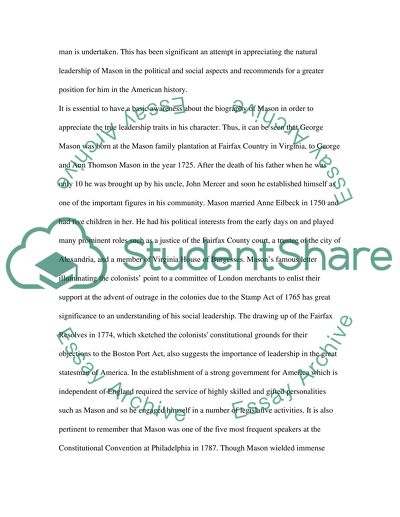Cite this document
(George Mason In The History Essay Example | Topics and Well Written Essays - 1750 words, n.d.)
George Mason In The History Essay Example | Topics and Well Written Essays - 1750 words. https://studentshare.org/biographies/1546661-george-mason
George Mason In The History Essay Example | Topics and Well Written Essays - 1750 words. https://studentshare.org/biographies/1546661-george-mason
(George Mason In The History Essay Example | Topics and Well Written Essays - 1750 Words)
George Mason In The History Essay Example | Topics and Well Written Essays - 1750 Words. https://studentshare.org/biographies/1546661-george-mason.
George Mason In The History Essay Example | Topics and Well Written Essays - 1750 Words. https://studentshare.org/biographies/1546661-george-mason.
“George Mason In The History Essay Example | Topics and Well Written Essays - 1750 Words”. https://studentshare.org/biographies/1546661-george-mason.


